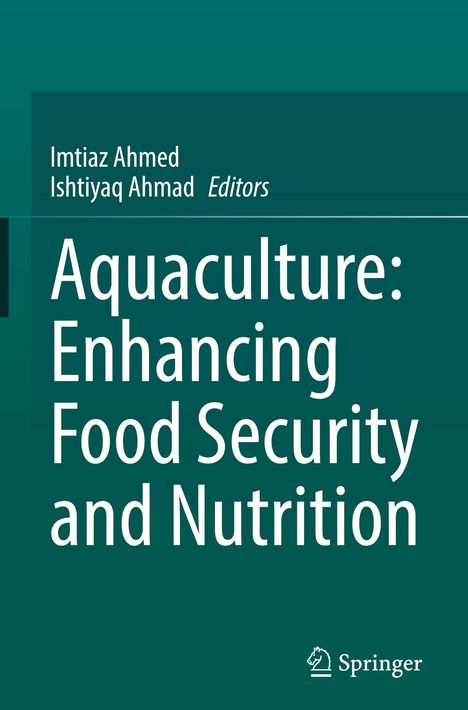Aquaculture: Enhancing Food Security and Nutrition, Gebunden
Aquaculture: Enhancing Food Security and Nutrition
(soweit verfügbar beim Lieferanten)
- Herausgeber:
- Ishtiyaq Ahmad, Imtiaz Ahmed
- Verlag:
- Springer International Publishing, 07/2025
- Einband:
- Gebunden
- Sprache:
- Englisch
- ISBN-13:
- 9783031928574
- Artikelnummer:
- 12348617
- Umfang:
- 520 Seiten
- Gewicht:
- 937 g
- Maße:
- 241 x 160 mm
- Stärke:
- 34 mm
- Erscheinungstermin:
- 3.7.2025
- Hinweis
-
Achtung: Artikel ist nicht in deutscher Sprache!
Klappentext
This work compiles the impact of aquaculture in addressing the pressing challenges of global food security and nutritional deficits. The book provides a comprehensive understanding about how aquaculture is playing an instrumental role in ensuring a sustainable and nourished food source. In the face of a growing global population and increasing demands for protein-rich diets, traditional means of fish and its products from wild fisheries alone are inadequate which warrant an alternate source that can fulfill the demand of fish for human consumption. Aquaculture emerges as a sustainable solution, promising to bridge the widening gap between the supply and demand for fish and its products. Through meticulously researched insights and data, the book showcases how aquaculture systems are meeting the protein and nutritional needs of people worldwide.
The book entitled as "Aquaculture: Enhancing Food Security and Nutrition" sheds light on the various forms of aquaculture like freshwater, marine and brackish water cultivation highlighting their benefits and potential drawbacks. The focus is on in what way aquaculture practices can be environmentally responsible, economically viable and socially inclusive, paving the itinerary for a balanced and sustainable food ecosystem. By exploring the advancements in aquaculture technologies such as recirculating aquaculture systems (RAS) and integrated multi-trophic aquaculture (IMTA), the book also advocates the environmental friendly and resource-efficient practices that enhance both food security and nutrition. Moreover, the book underscores the nutritional value of fish and its products, highlighting their rich nutrient composition including protein, amino acids, fatty acids, vitamins and minerals, which are fundamental for human health. It also offers insights about the incorporation of fish and its products in the food that can positively impact nutrition and combat malnutrition, especially in vulnerable human populations.

